Victoria, BC: For 40 years, the Habitat Conservation Trust Foundation (HCTF) has helped fund conservation groups, government, Indigenous Nations, and local communities to implement projects that protect B.C.’s wildlife, freshwater fish, and the habitats they need to survive and thrive. This year, HCTF awarded $9.3 million in funding for 175 individual conservation projects throughout British Columbia.
HCTF’s CEO Dan Buffett is pleased to report that the 2021/22 grant season represents the Foundation’s highest record annual investment and reflects the financial contributions and hard work of many British Columbians that fund and implement these projects. To date, HCTF has funded 3,230 conservation projects and granted over $195 million in funds across the length and breadth of this ecologically diverse province.
One such project led by the Ministry of Forests, Lands, Natural Resource Operations and Rural Development, is a Seasonal Habitat Study for the Management and Restoration of Roosevelt Elk. The project, which received $113,700 in funding from HCTF and the Forest Enhancement Society of BC (FESBC) will track Roosevelt elk in the Campbell River Natural Resource District on Vancouver Island.
The Roosevelt elk is endemic to coastal regions of the Pacific Northwest and is on the province’s species at risk blue-list. As one of the largest herbivores and prey species on the coast, Roosevelt elk play an important role in Vancouver Island ecosystems and are a traditional food source for coastal First Nations.
Working with students from the University of British Columbia, the study seeks to investigate which seasonal habitat types Roosevelt elk prefer throughout the year and the availability of those habitats to support elk population. The project will attach GPS tracking collars to the elk which will track and produce data about the movements of elk through various habitat types seasonally. This data will then be used to model habitat supply and inform the province’s Roosevelt elk management plan.
“Roosevelt elk are an important component of the West Coast ecosystem and a top management priority in B.C. Understanding the quality, quantity, and distribution of habitats across all seasons is fundamental for informing our habitat and population management objectives and meeting key recommendations in the management plan for this blue-listed species,” said Carl Morrison, Ecosystems Biologist and project lead. “Support from HCTF and FESBC is allowing us to update the science behind our habitat supply models to inform management decisions and risk assessments, like monitoring the effectiveness of Ungulate Winter Ranges to support our population objectives.”
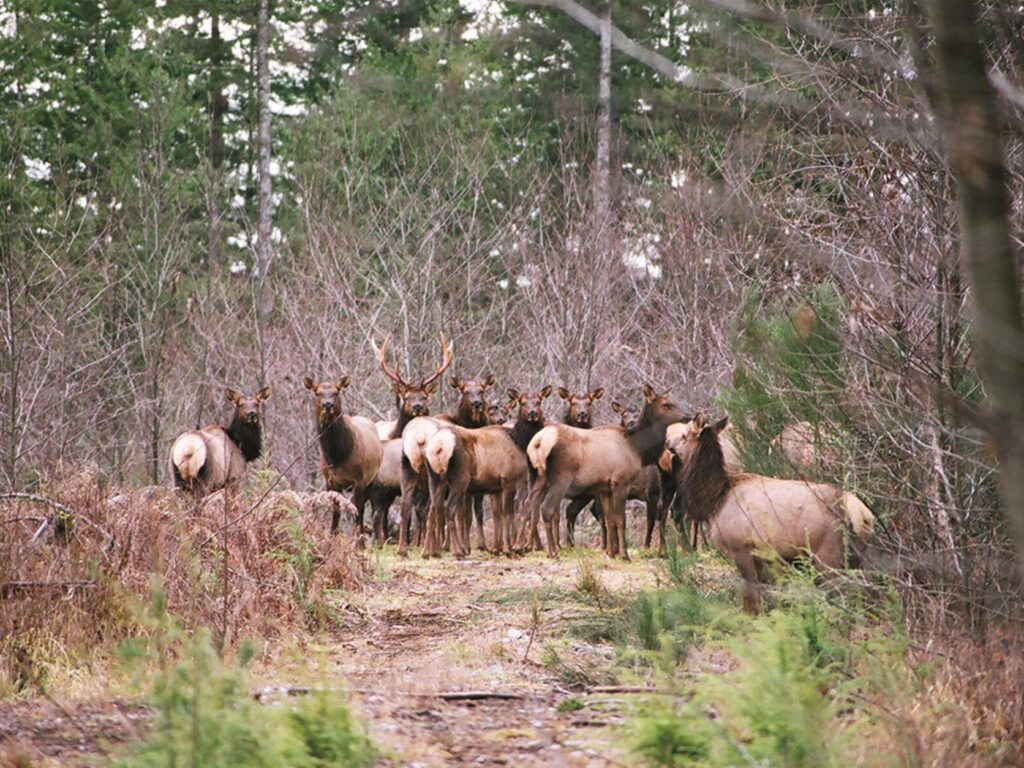
Roosevelt Elk – HCTF 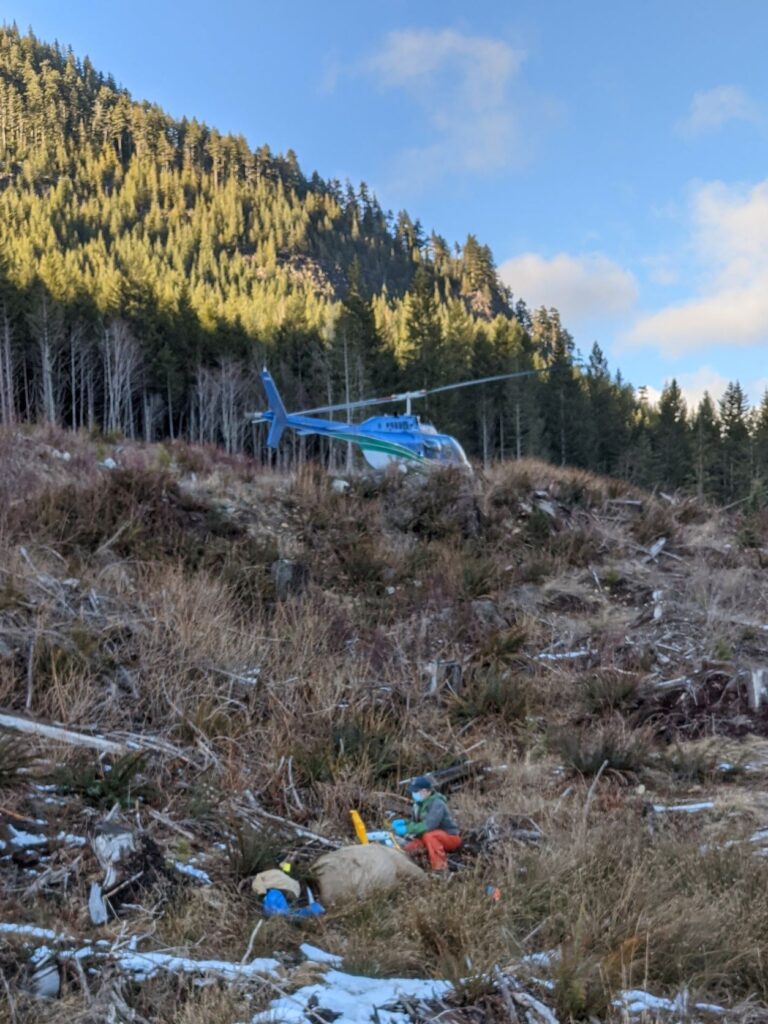
C. Morrison 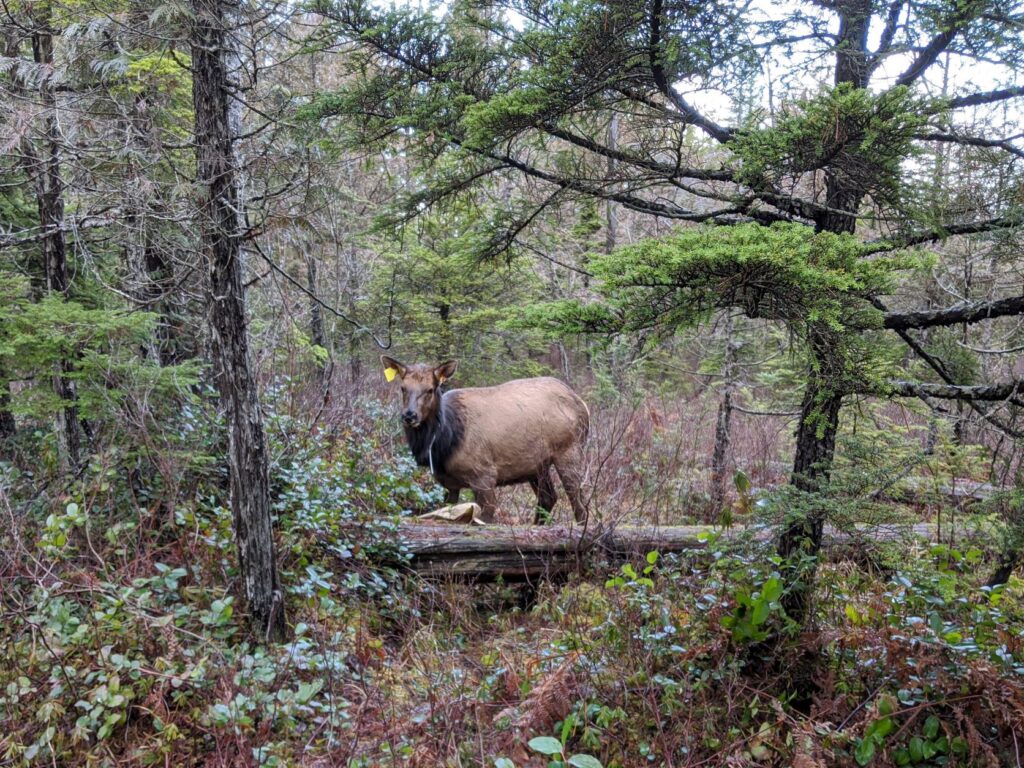
Tagged Roosevelt Elk – C. Morrison 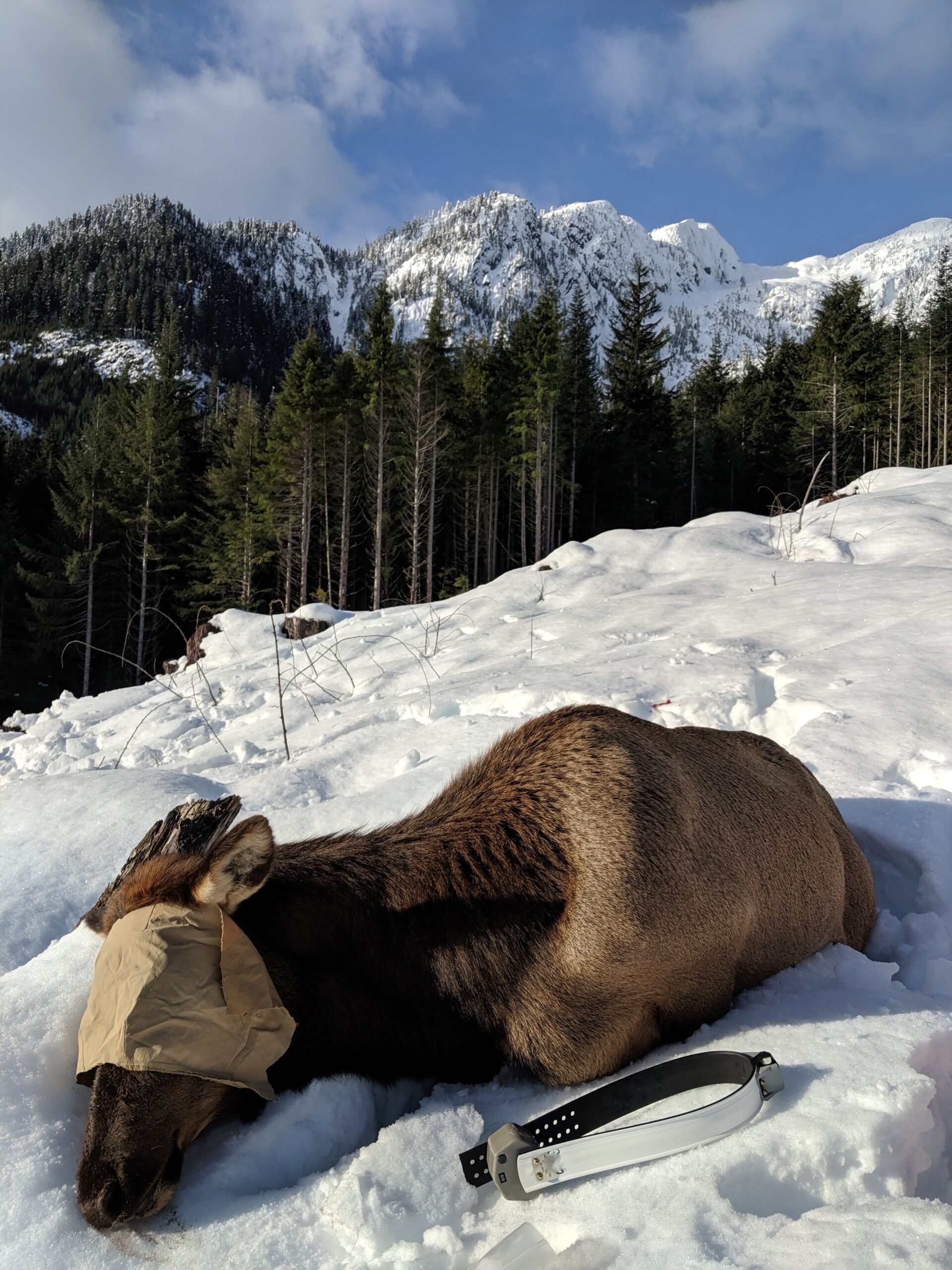
C. Morrison 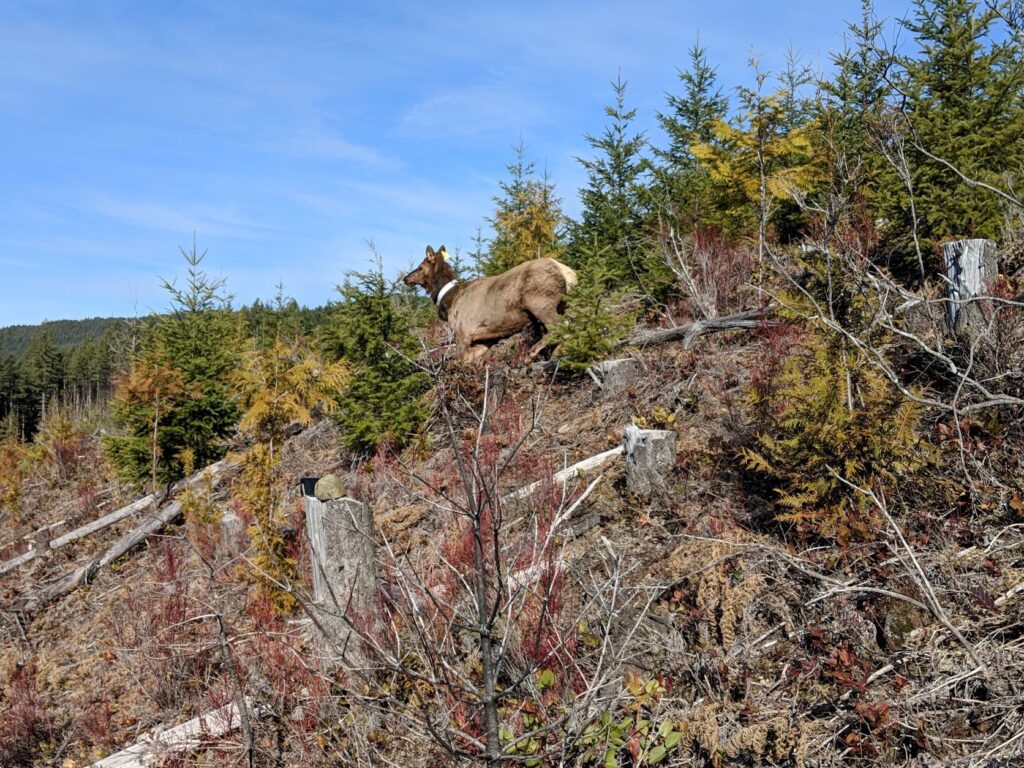
Roosevelt Elk in Cutblock – C. Morrison 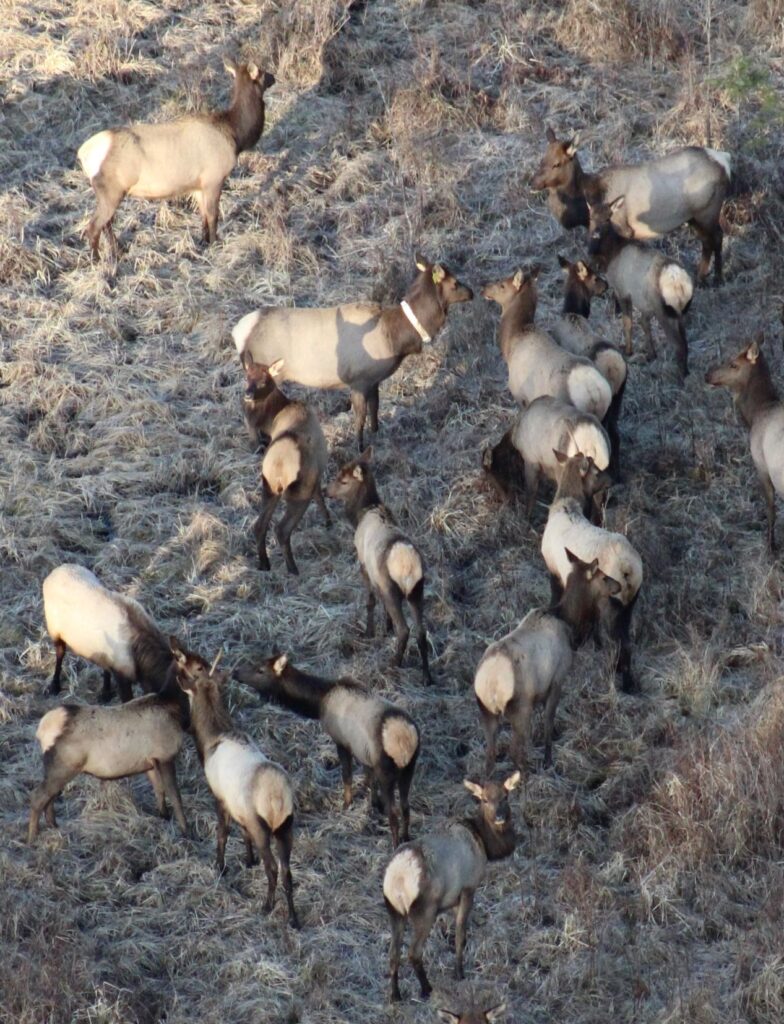
Roosevelt Elk with Collar – C. Morrison 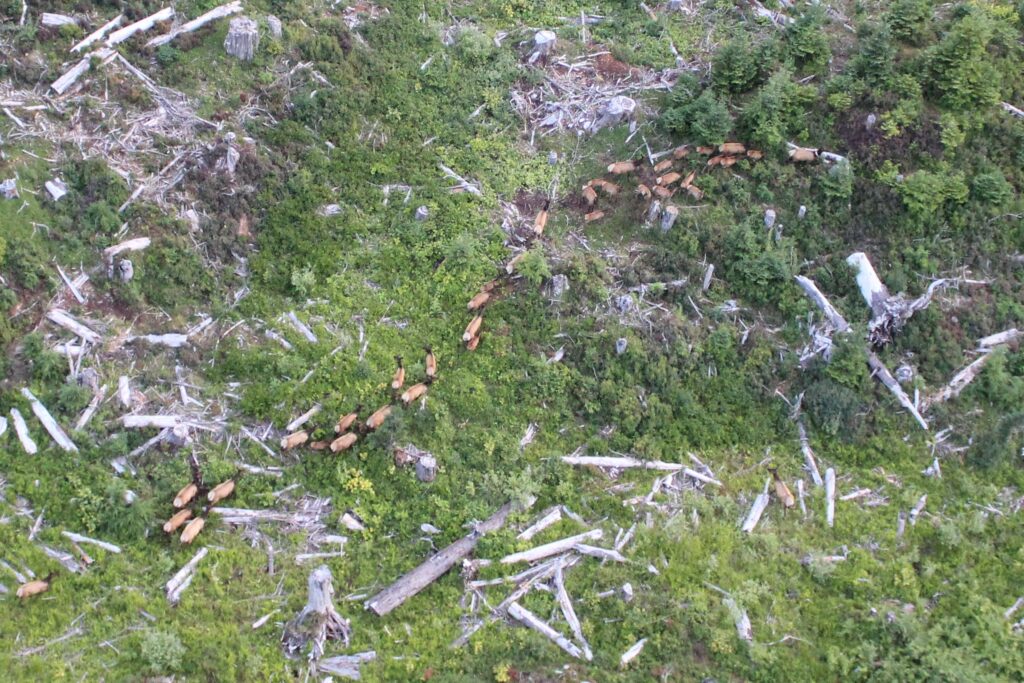
Collared Roosevelt Elk in Lead – C. Morrison
Other HCTF-funded projects taking place on Vancouver Island include:
- $49,450 for establishing Vancouver Island Marmots in Strathcona Provincial Park, co-funded by FESBC.
- $100,000 to study Keogh River Steelhead population dynamics, informing B.C.’s Steelhead management efforts.
- $20,182 to support the recovery of reintroduced Western Bluebirds populations across the coastal Gary oak ecosystem throughout the Salish Sea.
- $24,484 to improve the survival of juvenile Western Toads by reducing the disturbance of shoreline habitat and by reducing road mortality through planned wildlife pathways.
$38,000 for the ecological restoration of Vancouver Island estuaries including those around the Nanaimo River, in partnership with the Snuneymuxw First Nation.
Funding and support for these projects and others across the province come from a wide variety of sources including public groups such as the British Columbia Wildlife Federation (BCWF), partner organizations like FESBC, provincial government contributions, court fines, and endowments. A significant source of funding comes from the conservation surcharge paid by B.C.’s anglers, hunters, trappers, and guide outfitters.
“Over 40 years ago, a group of concerned hunters and anglers, lobbied for a surcharge on hunting and fishing licenses to fund wildlife and fish habitat improvement projects throughout the province,” said BCWF president Chuck Zuckerman. “The result of this impassioned call from B.C.’s hunters, anglers, trappers and sport shooters formed a new fund in 1981 that subsequently evolved into the Habitat Conservation Trust Foundation.”
Steve Kozuki, executive director of FESBC, has been pleased to be a partner with HCTF.
“We are proud to partner with HCTF and local experts on the ground throughout British Columbia to improve wildlife habitat,” said Kozuki. “HCTF combines wildlife biology expertise with their excellent management of funds to deliver outstanding benefits for wildlife. With all the pressures on the land base, the good work HCTF does is more important than ever.”
Each project funded by HCTF goes through a multi-level, objective and technical review process prior to final Board review and decision. HCTF’s Board of Directors ensure that species important to B.C. anglers and hunters are supported but also place a great deal of importance on conserving whole ecosystems, species-at-risk, and investing in environmental education across the province.
To see the complete list of HCTF funded projects or explore the conservation work being done near you, view the 2021-22 Approved Project List.
For interviews:
Habitat Conservation Trust Foundation
Craig Doucette, Communications Officer |
Direct: 250 940 3012 | Toll-free: 1 800 387 9853 ext. 212 Craig.Doucette@hctf.ca
Forest Enhancement Society of BC
Aleece Laird, Communications Liaison
Direct: 250 574 0221 | communications@fesbc.ca

HCTF Quick Facts
It is the mission of HCTF to improve the conservation outcomes of B.C.’s fish and wildlife, and the habitats in which they live. We make a difference by funding conservation projects and by educating and engaging the public about B.C.’s natural assets. 2021 marks HCTF’s 40th anniversary of helping conservation groups and individuals secure funding for conservation projects and providing education to the general public about B.C.’s important natural assets. Since 1981, HCTF has provided over $195 million in grants for 3,230 conservation projects across B.C. HCTF began as an initiative by B.C. anglers, hunters, trappers, and guide outfitters.
